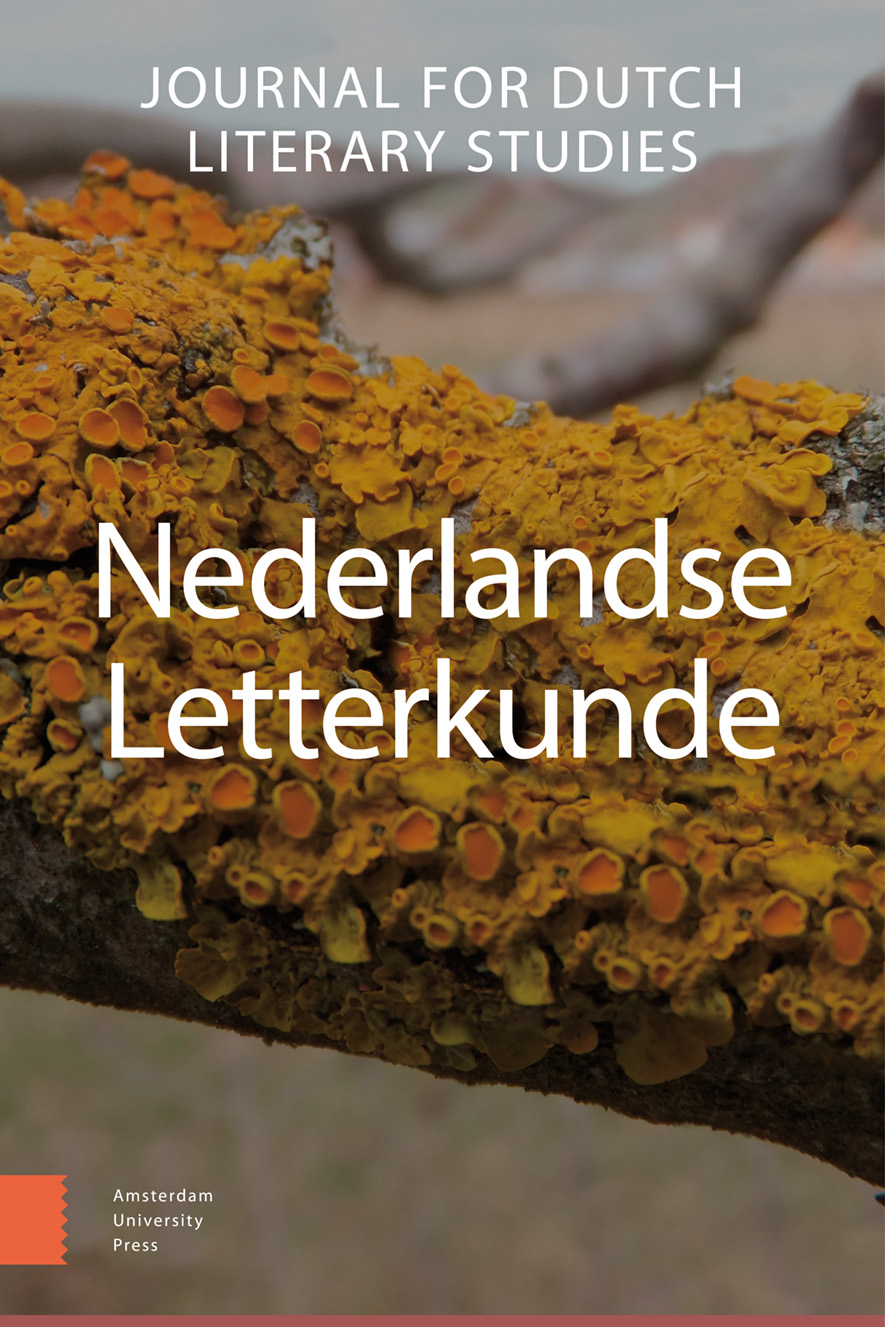- Home
- Publications
- Nederlandse Letterkunde
- Previous Issues
- Volume 18, Issue 3, 2013
Nederlandse Letterkunde - Volume 18, Issue 3, 2013
Volume 18, Issue 3, 2013
-
-
Hollandse helden. Gemeenschap en natie in middlebrowromans
More LessAuthor: Erica Boven, vanThis article proposes a new approach to middlebrow novels, focused on ideological topics and social functioning. As a demonstration of this approach two very popular middlebrow novels are analyzed on the keyword ‘Dutch’ (Hollands) and a network of related terms: Hollands glorie (1940) by Jan de Hartog and Die van ons (1945) by Willy Corsari. It is argued that these novels express norms and values on social solidarity and national community, in the narration as well as thematically. These values were hold broadly and strongly in the 1930s and 1940s. By giving shape to these central norms the novels could fulfill essential social needs and fundamental psychological functions. The novels meet the middlebrow program that advocated a view on literature as a binding force in society.
-
-
-
Goedkoop, Groot, Geïllustreerd - Literatuurkritiek en publieksbemiddeling in Morks’ Magazijn (1910-1942) en “Zij”: Maandblad voor de vrouw (1916-1942)
More LessAuthor: Alex RuttenThis article discusses the background, content, mission statements and key contributors of the illustrated magazines Morks’ Magazijn and “Zij”: Maandblad voor de vrouw, both of which sought to make art, science and literature available to a wide reading public. By employing recent conceptualisations of so-called middlebrow magazines and their specific modes of criticism, this article provides an in-depth view of how popular periodicals could shape (and position themselves within) the public sphere at the beginning of the twentieth century and of the role that cultural mediation and literary criticism played in this process.
-
-
-
Drie Grieken in een pre- en posthistorische metropool - Een ‘euhemeristische’ interpretatie van Carel Vosmaers Londinias (1873)
More LessAuthor: Rob Schoor, van deAt the publication of his Homer parody, Londinias, in 1873, Vosmaer proposed – not without irony – that the future researcher ought to try an euhemeristic interpretation of his poem. In the present paper we accept his challenge. Using three different modern literary approaches we try answering a research question that may be derived from euhemerism: what is the relationship between reality and mythology in Londinias? We describe the visit to the British Museum of the three heroes of the poem, ancient Greeks transformed into 19th-century Dutchmen, as a type of reenactment of the past. Using the notion of performativity we compare the aesthetics and life vision of the Ancient World, as represented in the Elgin Marbles, to the contemporary reality of London, a city that has transcended mankind. Next, we examine the city experience of the three Greek Dutchmen in a section designated urban anxiety, because that aptly describes the impression that London leaves with them. We conclude our study with an examination of the space descriptions in Londinias with the aid of Bakhtin’s chronotope concept, in order to determine the genre the poem belongs to, according to the reader.
-
-
-
Deconstructie met een missie - Postmodernistische aspecten in de sprookjes van Sybren Polet
More LessAuthor: Hans Stralen, vanSybren Polet’s place within Dutch literature is hard to determine. This essay seeks to connect Polet’s fairy tales to postmodernism, which can be described as an antirealist movement that deconstructs conventional (linguistic) frames. Postmodern fairy tales are also frequently defined by unsettling traditional role patterns, which Polet’s stories also exhibit. In his fairy tales, however, the reader is often morally instructed, which contrasts with the postmodern aversion to posit an explicit ideology in stories. This observation can be clarified by considering Polet’s affinities with Marxist poetics: the reader needs to come to terms with an alternative perception of the world. Polet’s fairy tales can justifiably be considered anti-fairy tales since they confront the reader to accept a morality that negates bourgeois conventions.
-
Volumes & issues
Most Read This Month


